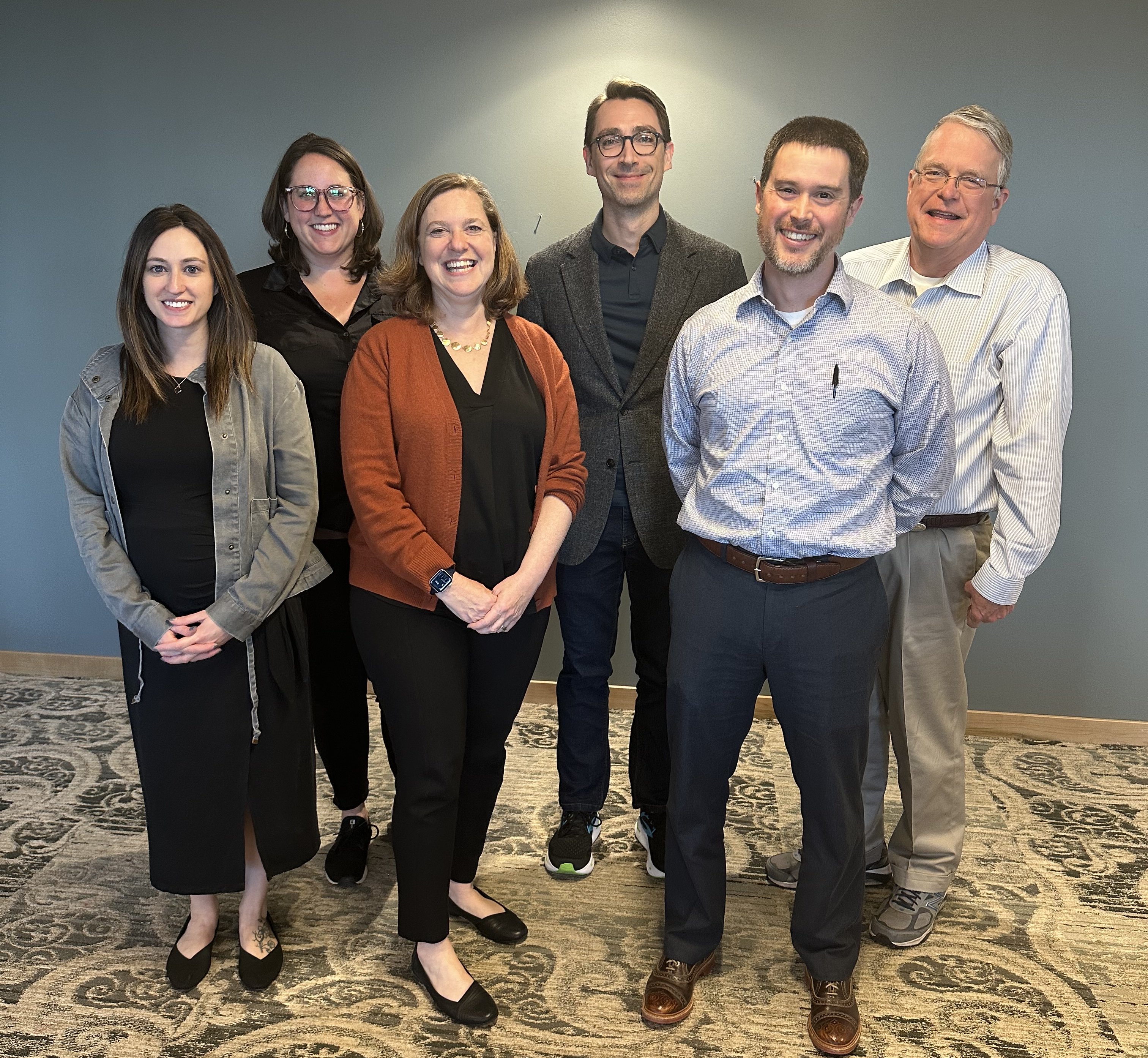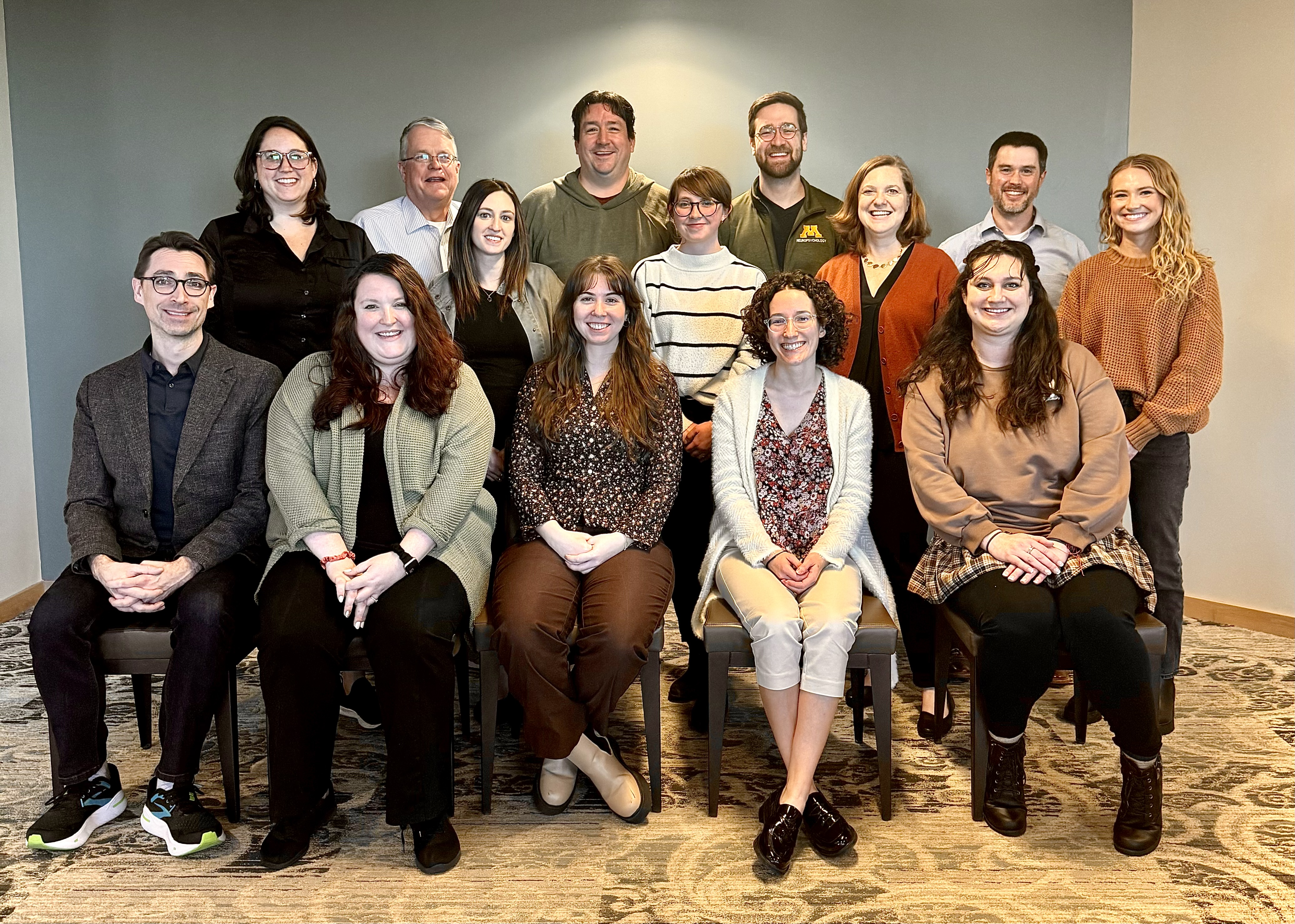Adult Neuropsychology Postdoctoral Program
The Adult Clinical Neuropsychology Postdoctoral Residency program offers high-quality neuropsychological services and training provided at the University of Minnesota. Our team of board-certified clinical neuropsychologists are enthusiastic about providing advanced training opportunities to help future generations of neuropsychologists become board certified and to offer high-quality services, teaching, and research. We are committed to a good balance of work and personal life. Explore the page to learn more about our training, living in Minnesota, and our faculty!

AT A GLANCE
The program is two years of full-time formal training in clinical neuropsychology with appropriate clinical, research, and didactics components. The fellowship is designed to be a capstone training experience that allows the resident to become an independently licensed practitioner who is eligible for board certification after completing training.
Watch our welcome video to meet the faculty, learn more about living in Minnesota, and how to apply.

WELCOME APPLICANTS
The faculty and staff of the University of Minnesota Department of Rehabilitation Medicine are very pleased that you are interested in our Adult Clinical Neuropsychology Postdoctoral Residency program. Although our program is new, the faculty have over a half-century of experience in clinical neuropsychology and the department has a long and storied history. We are proud to provide training at the University of Minnesota and to call the Twin Cities our home. We are dedicated and enthusiastic clinicians, teachers, and researchers and provide high-quality neuropsychology training to residents interested in adult clinical neuropsychology. Our program faculty and psychometrists are a great team of professionals, and we invite you to apply to join us as a Postdoctoral Resident. We are also proud to announce that the University of Minnesota and our program will host the Houston Conference Revision conference to be held in September 2022.
The University of Minnesota and the Twin Cities are fantastic communities to live, learn, and work. The website and handbook provide some information and insights into living in the upper Midwest with all that this region has to offer. We look forward to your application, and please feel free to reach out to any of us if you have any questions.
PROGRAM OVERVIEW
Our program has a particular emphasis on the clinical manifestations of neurological and psychiatric disorders in adults. The Neuropsychology Laboratory of the Department of Rehabilitation Medicine is the primary training site providing extensive training opportunities with a diverse patient population. The training program accepts one resident per year, with a strong individualized training. The Resident will have the opportunity to work with all of the core faculty throughout the year and gain experience in both inpatient and outpatient neuropsychological consultation. The program is a member of the Association of Postdoctoral Programs in Clinical Neuropsychology (APPCN) and participates in the match program administered through APPCN.
The outpatient training opportunities are based at the Clinics and Surgery Center (CSC) and inpatient services are provided through the University of Minnesota Hospitals, which is a partnership with MHealth Fairview. We receive referrals from throughout the academic medical center and the community, including the departments of Rehabilitation Medicine, Neurology, Neurosurgery, Psychiatry, Family Medicine, Internal Medicine Transplant Services, and the Cancer Center.
Given the setting in a large urban academic medical center, the program has strengths in assessing neuropsychological syndromes associated with numerous psychiatric and/or neurological disorders. Residents will gain experience with common medical and psychiatric conditions including Alzheimer’s disease and other neurodegenerative conditions, Parkinson’s disease and other movement disorders, multiple sclerosis, autoimmune disorders, traumatic brain injury, seizure disorders, normal pressure hydrocephalus, brain tumors, other cancers and cancer treatment, vascular disorders, medical conditions, transplant candidacy, psychiatric disorders such as schizophrenia, depression, ADHD and learning disorders. Residents also have the opportunity to receive training and experience with rarer conditions, such as adrenoleukodystrophy and autoimmune encephalopathies, and atypical parkinsonism including a Center of Excellence for progressive supranuclear palsy. We have extensive involvement in the University of Minnesota Udall Center, which has a focus on deep brain stimulation in Parkinson’s disease. Many inpatient neuropsychological evaluations and consultation experiences are focused on the physical medicine rehabilitation units and cardiac transplant patients.
Advanced training in neuropsychological assessment is at the heart of the postdoctoral fellowship. Residents typically participate in one outpatient evaluation per day and one or two inpatient evaluations per week. Residents typically split their time between testing their own patients and working with psychometrists. The typical outpatient battery is two-to-three hours in length and is determined by the referral question and the condition of the patient while inpatient batteries tend to be brief, focused evaluation of specific issues.
TRAINING PHILOSOPHY AND MISSION
The training philosophy for the Adult Clinical Neuropsychology Postdoctoral Residency is based on the scientist-practitioner model and is consistent with the Houston Conference Guidelines for training in clinical neuropsychology (Hannay, Bieliauskas, Crosson, Hammeke, Hamsher, & Koffler, 1998). Further, consistent with the expectations of the newly established neuropsychology taxonomy (Sperling, et al. 2017), the program has a Major Area of Study in clinical neuropsychology. In other words, the training program is two years of full-time formal training in clinical neuropsychology with appropriate clinical, research, and didactics components. The fellowship is designed to be a capstone training experience that allows the resident to become an independently licensed practitioner who is eligible for board certification after completing training.
PROGRAM COMPETENCY
Residents are expected to attend proficiency in several areas of competencies critical for success as an early career neuropsychologist and in the board certification process. Residents will be regularly evaluated on their progress in these competency areas and provided both formative and summative feedback. The program will adopt the competencies articulated in the 2022 Minnesota Neuropsychology Update Conference once these are published and endorsed by APPCN. The specific competencies will include both Foundational and Functional Competencies. Residents should expect to be evaluated on these competencies.
Foundational Competencies:
- Integration of Science and Practice
- Ethics, Standards, Laws, and Policies
- Equity, Justice, Cultural Respect, and Inclusion
- Self-reflection and Self-care
- Interpersonal Skills
Functional Competencies:
- Assessment
- Intervention and Resource Knowledge
- Interdisciplinary Systems and Consultation
- Research and Scholarly Activities
- Teaching, Supervision, and Mentoring
- Administrative Leadership, Management, and Business
- Advocacy
- Technology and Innovation
WORKING AT THE UNIVERSITY OF MINNESOTA
The University of Minnesota Medical School is a world-class leader in medical education, research, and patient care. We educate students and fellows, provide patient care, and perform biomedical and clinical research. We have a decades-long foundation of educational excellence training the next generation of healthcare professionals. Our mission is to provide innovative education and training, research that advances medicine and clinical care that improves the lives of our patients.
Our 3,000 outstanding faculty members are committed to achieving excellence in research, clinical care, and developing the next generation of health professionals. Our Medical School faculty physicians care for patients and oversee the training of residents and medical students in our primary teaching hospitals.
LIVING IN THE TWIN CITIES

If you are inspired by a big challenge, you've come to the right place! Set on the banks of the Mississippi River and surrounded by a vibrant metropolitan community with agricultural roots, the U of M's Twin Cities campus is the place!
The Twin Cities believe in art and artists. The Walker Art Center and the Minneapolis Sculpture Garden, the Guthrie Theater, and the Minneapolis Institute of Arts— these are just a few examples. The University of Minnesota’s arts programs are connected to all these creative communities.
Our campus offers the magnificence of Northrop, the Weisman Art Museum, the Bell Museum of Natural History, the Goldstein Museum of Design, and the West Bank Arts Quarter.
Centered in a vibrant urban area, the U of M is also a world in itself— with more than 10,000 trees, miles of bike paths, and the Mississippi National River and Recreation Area right in the heart of campus. The Twin Cities and surrounding suburbs are a hotbed of world-class restaurants, breweries, and distilleries. The music scene is known the world over, and there are all imaginable sports offerings, from the MLB, NFL, NBA, WNBA, and MLS, to all the Gopher Sports games on campus, to local curling clubs and roller derby.
Program & Policy Manuals
For information that applies to all residents in a training program at the University of Minnesota, consult the Institution Policy Manual. Information in the Institution Policy Manual takes precedence over the Program Manual in cases where there is conflict.
General Information
Contact
Douglas Whiteside, ABPP/CN
Program Director
whit3055@umn.edu
Eric Waldron, ABPP/CN
Associate Training Director
ewaldron@umn.edu
Administrative Contact
Molly Costa
mcosta@umn.edu